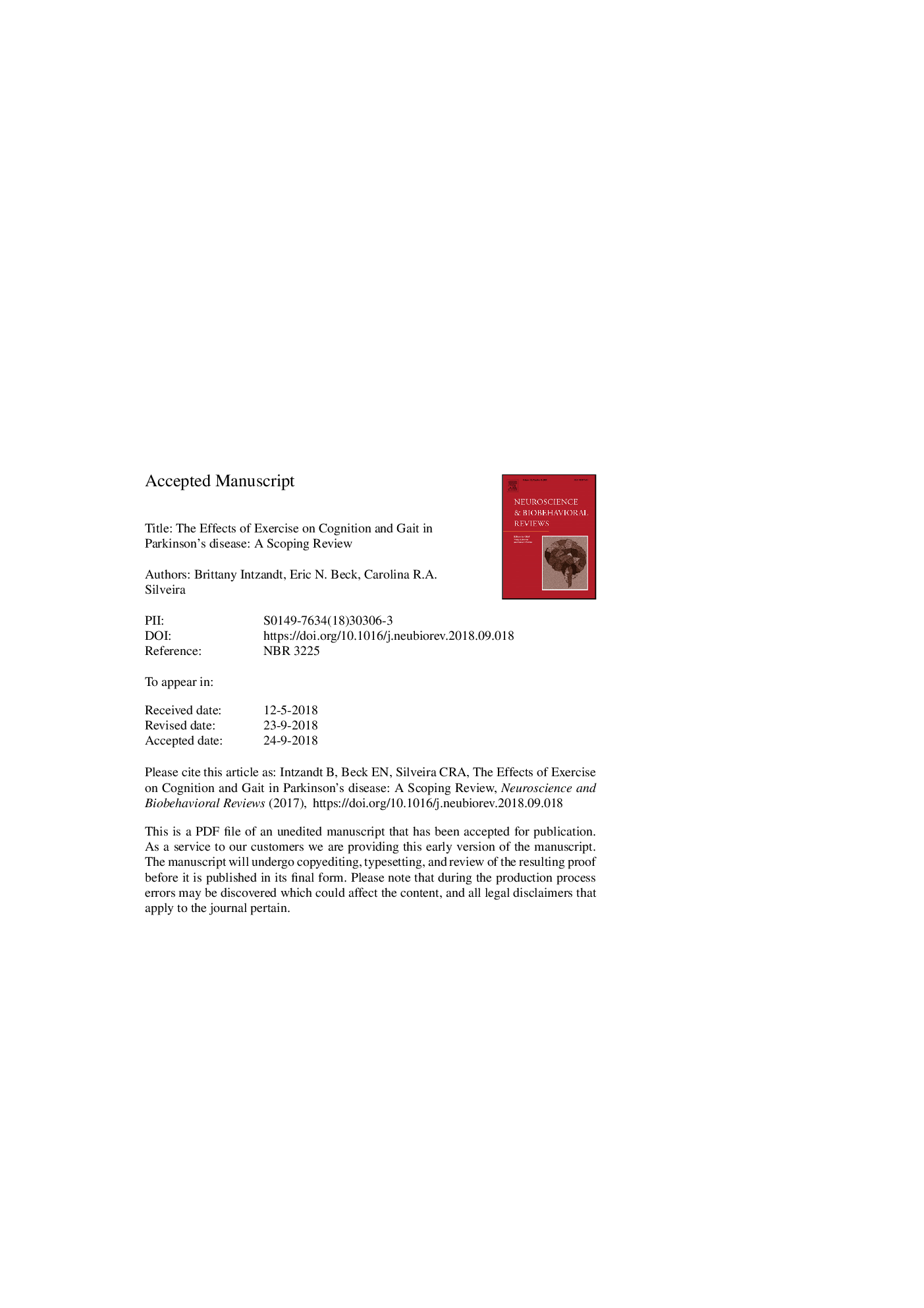| Article ID | Journal | Published Year | Pages | File Type |
|---|---|---|---|---|
| 11263260 | Neuroscience & Biobehavioral Reviews | 2018 | 85 Pages |
Abstract
Cognitive and gait deficits are two debilitating symptoms that occur in Parkinson's disease (PD). Importantly, a relationship between cognitive and gait deficits exists in PD, suggesting reliance on cognition is increased to compensate for gait deficits and/or deterioration of cognition and gait may share common mechanisms. Rehabilitation strategies targeting one factor could lead to the improvement of the other, presenting a unique opportunity to treat both simultaneously. Gold-standard pharmaceuticals partially alleviate these deficits with significant side effects, highlighting the importance of investigating adjunct therapies like exercise. We critically reviewed the influence of three exercise modalities (aerobic, resistance, and goal-based) on cognition and/or gait in PD. Most studies showed improvements in cognition or gait, yet, a limited number investigated them concurrently. This is the first review examining exercise for cognition and gait in PD. Key gaps in the literature are identified; potential exercise-driven mechanisms for enhancements in cognition and gait proposed, and suggestions for the design of future studies investigating the effects of exercise on cognition and gait in PD.
Keywords
Related Topics
Life Sciences
Neuroscience
Behavioral Neuroscience
Authors
Brittany Intzandt, Eric N. Beck, Carolina R.A. Silveira,
